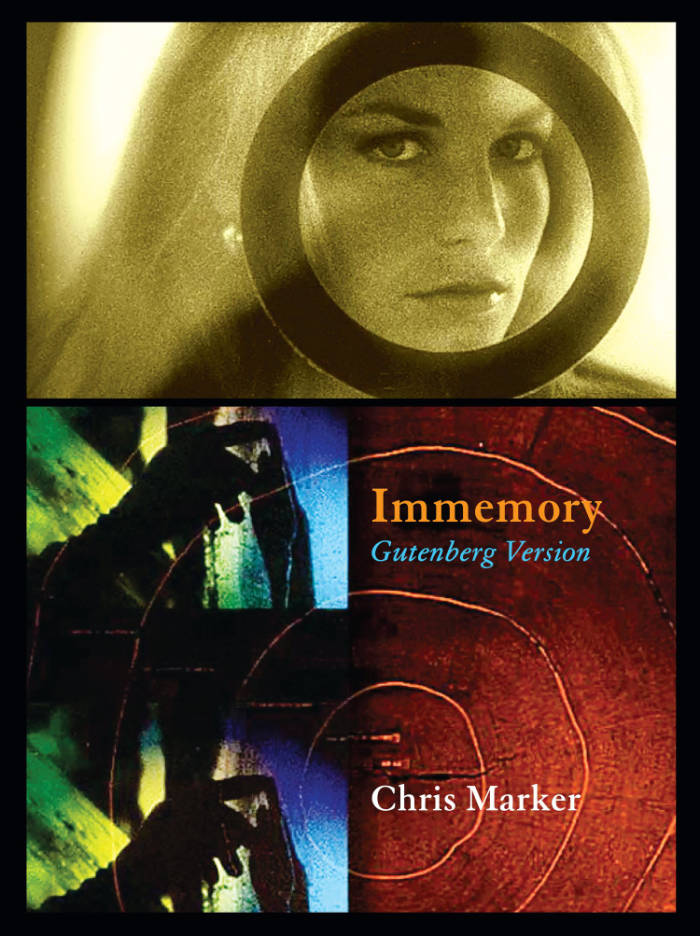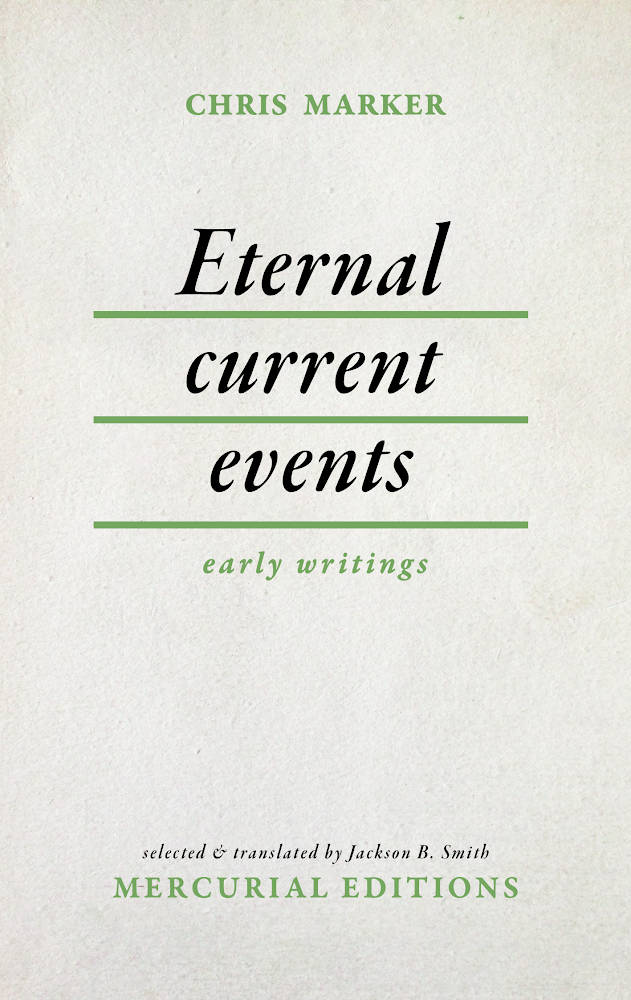
A propos du CD-ROM Immemory de Chris Marker
French/English paperback with essays by Raymond Bellour and Laurent Roth on Chris Marker's Immemory.
'Chris Marker's CD-ROM Immemory is most easily imagined as a digitally stored attic room, divided into zones of memories. Those zones show (fragments of) photographs, engravings, paintings, films, texts, edited or annotated, which are plotted along a number of virtual trajectories that one can traverse: Le Voyage, Le Musée, La Mémoire, La Poésie, La Guerre, La Photo, Le Cinéma.
The central question, borrowed from Marcel Proust, is also the heading of the La Mémoire section: "Qu'est-ce qu'une madeleine?" What charges something with the affect of memory? Why is that one detail, that one book, poem or painting the emotional and essential among all others?' (Witte Raaf 1999)
Yves Gevaert publisher, co-published with the Centre Georges Pompidou, Paris







